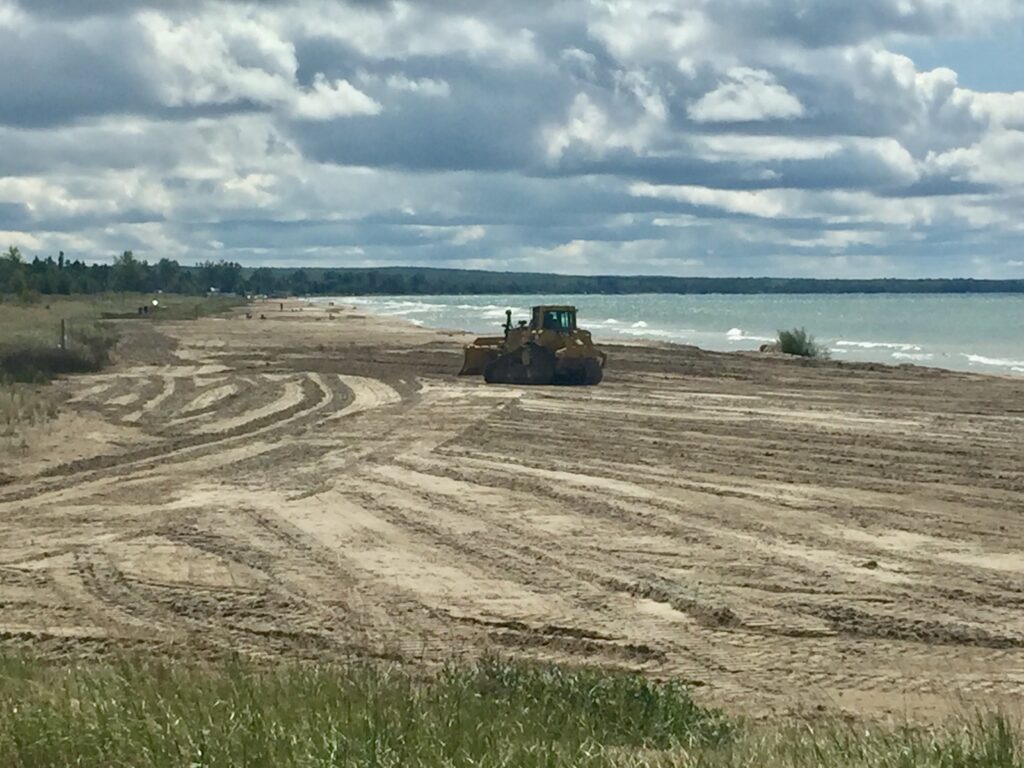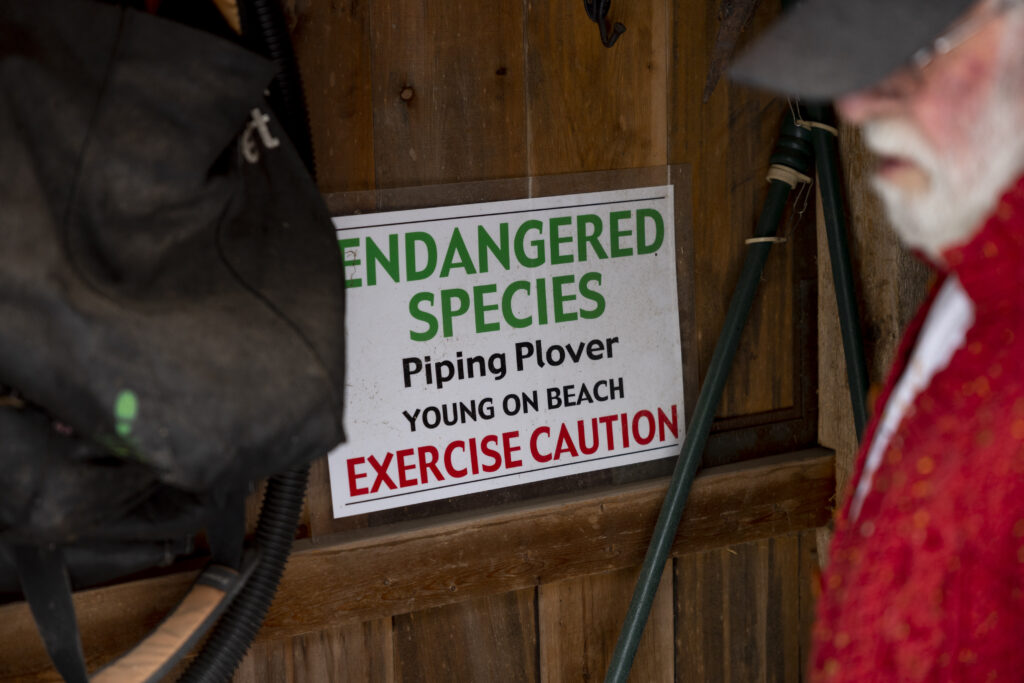
Drawing (on) a decade of climate change in the North
Artist Alison McCreesh’s latest book documents her travels around the Arctic during her 20s. In...
Ontario’s appeal court has dismissed the Town of South Bruce Peninsula’s legal challenge of convictions charging the municipality with damaging piping plover habitat.
Over the past five years, the town has been engaged in a legal battle with the Ontario Ministry of Natural Resources over maintenance of the 11 kilometres that make up Sauble Beach, the second-longest freshwater beach in the world. On a good summer, the sandy shores become home to the tiny endangered birds. They rely on sand dunes and wind-swept, natural rubble to provide the habitat they need to mate and nest.
Piping plovers had all but disappeared from the beach until 2005, when a pair appeared for the first time in decades. Since then, local residents have rallied to prioritize their safety. But as tourism boomed to record levels, fuelled by population growth and pandemic-lockdowns, the town council invested in raking and bulldozing the entire width and length of the beach to make it attractive to human visitors and developers. In the process, sensitive dune systems and plover habitat was destroyed.

In 2017, the provincial ministry fined the Town of South Bruce Peninsula $100,000 for violating section 10 of the Endangered Species Act, which prohibits damage of habitat like that of the at-risk piping plover.
The act leaves the definition of “damage” open to interpretation, and this case is the first to consider it in Ontario. The municipality is arguing that plovers returned to the beach in subsequent years and that such maintenance is needed to manage a “heavily recreated” beach that is shared by humans and species-at-risk alike.
The court decision, written by Justice Gladys I. Pardu, found that the maintenance work done by the town “far exceed the work contemplated and agreed to by the (Ministry of Natural Resources).”
“Vegetation, wrack and driftwood were removed, the surface of the beach was levelled and microtopographical features of the beach, like mounds of sand, were flattened. The work left deep furrows and tire tracks on the beach,” Pardu wrote. She added that these actions, according to expert witnesses, removed areas and features plovers use for nesting, feeding, shelter and survival.
“Turning over the sand, as was effected by raking, made the insects and invertebrates normally living in the upper layers of the sand less available to the Plover. The birds’ need for food was particularly acute when they arrived after a long migration, if they were to successfully reproduce,” Pardu wrote.
The ministry’s $100,000 fine is to be paid to Birds Canada, which runs a plover recovery program at Sauble and Wasaga Beach. This is the second appeal the town has lost, the third time an Ontario court has ruled against it.
The Piping Plover urgently needed food when they arrived in April if they were to successfully nest and reproduce. The deep raking and turnover of the soil just before they arrived made the invertebrates upon which they depended as a source for food unavailable to them. The removal of wrack and vegetation from the shoreline deprived them of that source of camouflage and shelter. … The foredunes might take many years to recover.
– Justice Gladys I. Pardu, Ministry of Natural Resources vs. The Town of the South Bruce Peninsula
In making her decision, Pardu noted that there are four key goals of the Ontario Endangered Species Act. First, “to prevent the loss of species caused by human activities which damage the habitat of the species.” Second, to ensure that “measures to prevent significant reduction or loss of biological diversity should be taken even where full scientific certainty is not present.” Third, “to prevent damage to avoid or minimize threats to endangered species.” Fourth, to protect species at risk “with appropriate regard to social, economic and cultural considerations.”

Pardu found these goals — and the definition of a concept like “damage” in the act — are deliberately broad to allow for expansive environmental protections. She wrote that the judge on the initial appeal case did consider these goals and found “no overriding error.”
“I do not accept the argument of the (town) that there was no evidence of any link between the actions of the town and any effect on the Piping Plover habitat,” Pardu said.
Fighting the charges in court has cost the municipality close to $1 million. In a special council session on April 29, the town decided to accept this ruling and not pursue the matter further, which would have meant appealing at the Supreme Court of Canada. Mayor Janice Jackson told The Narwhal that the council was “deeply disappointed” by the outcome and that South Bruce hasn’t been able to do any maintenance on Sauble Beach for the last five years because of ongoing legal proceedings.
Jackson said the town will be revisiting its beach management plan and hopes to find some way of “truly sharing the beach” by protecting plovers while also maintaining tourism.
“We were just fighting this to be able to manage our own beach,” the mayor said “But for now our hands are completely tied on one of our main assets: a beach with a million tourists, our main economic driver.”
The plover lovers are, unsurprisingly, thrilled with the court’s decision. They say the ruling was made public right when the first plover — named Nubbins — landed on Sauble Beach this spring.
Updated on April 29, 2022 at 3:07 p.m. ET: This story was updated to include news that the Town of South Bruce Peninsula is not appealing the ruling, and that the first spring plover has landed on Sauble Beach.
Get the inside scoop on The Narwhal’s environment and climate reporting by signing up for our free newsletter. On March 17, federal Conservative Leader Pierre Poilievre...
Continue reading
Artist Alison McCreesh’s latest book documents her travels around the Arctic during her 20s. In...

I’ve watched The Narwhal doggedly report on all the issues that feel even more acutely...

Establishing the Robinson Treaties, covering land around Lake Huron and Lake Superior, created a mess...
